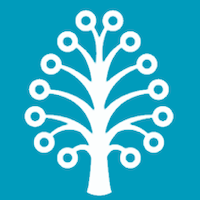
The Broken Ladder: How Inequality Affects the Way We Think, Live, and Die
Payne, Keith
- 121 Views
- 1 Wislist
- 0 Buy
Hardcover
brand new
RM67.40
Paperback
brand new
RM59.90
Buy New:
RM59.90
RM80.00
| You save RM20.10 (26%)
Format:
Paperback
ISBN-13:
9780143128908
Status:
Pre-order
Est. Delivery:
1 to 2 months
Key Notes:
- Supplier might delay due to reprinting or damaged condition.
- In the event of unavailability or being out of print, a full refund will be provided.
- Free Delivery
Orders over RM50 (only within Peninsular)
- Secure Payment
100% Secure payment
- Money Back Guarantee
If you did not get the book
- Customer Support
Within 1 business day
- Cashback
Earn 10 points (RM1) for every RM100 spent
- Buyback
Trade-in your used books now!(More info)
Print Length
256
Language
English
Publisher
Penguin Us
Publication Date
01 May 2018
Dimensions
5.5 x 0.63 x 8.25 inches
Weight
0.28 Kg
Synopsis png-80.00-40-9781524756345
“Brilliant. . . . an important, fascinating read arguing that inequality creates a public health crisis in America.” —Nicholas Kristof, New York Times
“The Broken Ladder is an important, timely, and beautifully written account of how inequality affects us all.” —Adam Alter, New York Times bestselling author of Irresistible and Drunk Tank Pink
A timely examination by a leading scientist of the physical, psychological, and moral effects of inequality.
The levels of inequality in the world today are on a scale that have not been seen in our lifetimes, yet the disparity between rich and poor has ramifications that extend far beyond mere financial means. In The Broken Ladder psychologist Keith Payne examines how inequality divides us not just economically; it also has profound consequences for how we think, how we respond to stress, how our immune systems function, and even how we view moral concepts such as justice and fairness.
Research in psychology, neuroscience, and behavioral economics has not only revealed important new insights into how inequality changes people in predictable ways but also provided a corrective to the flawed view of poverty as being the result of individual character failings. Among modern developed societies, inequality is not primarily a matter of the actual amount of money people have. It is, rather, people's sense of where they stand in relation to others. Feeling poor matters—not just being poor. Regardless of their average incomes, countries or states with greater levels of income inequality have much higher rates of all the social maladies we associate with poverty, including lower than average life expectancies, serious health problems, mental illness, and crime.
The Broken Ladder explores such issues as why women in poor societies often have more children, and why they have them at a younger age; why there is little trust among the working class in the prudence of investing for the future; why people's perception of their social status affects their political beliefs and leads to greater political divisions; how poverty raises stress levels as effectively as actual physical threats; how inequality in the workplace affects performance; and why unequal societies tend to become more religious. Understanding how inequality shapes our world can help us better understand what drives ideological divides, why high inequality makes the middle class feel left behind, and how to disconnect from the endless treadmill of social comparison.
“The Broken Ladder is an important, timely, and beautifully written account of how inequality affects us all.” —Adam Alter, New York Times bestselling author of Irresistible and Drunk Tank Pink
A timely examination by a leading scientist of the physical, psychological, and moral effects of inequality.
The levels of inequality in the world today are on a scale that have not been seen in our lifetimes, yet the disparity between rich and poor has ramifications that extend far beyond mere financial means. In The Broken Ladder psychologist Keith Payne examines how inequality divides us not just economically; it also has profound consequences for how we think, how we respond to stress, how our immune systems function, and even how we view moral concepts such as justice and fairness.
Research in psychology, neuroscience, and behavioral economics has not only revealed important new insights into how inequality changes people in predictable ways but also provided a corrective to the flawed view of poverty as being the result of individual character failings. Among modern developed societies, inequality is not primarily a matter of the actual amount of money people have. It is, rather, people's sense of where they stand in relation to others. Feeling poor matters—not just being poor. Regardless of their average incomes, countries or states with greater levels of income inequality have much higher rates of all the social maladies we associate with poverty, including lower than average life expectancies, serious health problems, mental illness, and crime.
The Broken Ladder explores such issues as why women in poor societies often have more children, and why they have them at a younger age; why there is little trust among the working class in the prudence of investing for the future; why people's perception of their social status affects their political beliefs and leads to greater political divisions; how poverty raises stress levels as effectively as actual physical threats; how inequality in the workplace affects performance; and why unequal societies tend to become more religious. Understanding how inequality shapes our world can help us better understand what drives ideological divides, why high inequality makes the middle class feel left behind, and how to disconnect from the endless treadmill of social comparison.
Contact Us
WhatsApp Us at 011-5356 2257
Delivery Services


Payment Methods

























© Bookurve 2023 (Bookurve Sdn Bhd 1115754-A)
No. B2-01 (Ground Floor : Facing LRT), E-tiara service Apartment, Persiaran Kemajuan Subang, 47500 Subang Jaya, Selangor
No. B2-01 (Ground Floor : Facing LRT), E-tiara service Apartment, Persiaran Kemajuan Subang, 47500 Subang Jaya, Selangor





